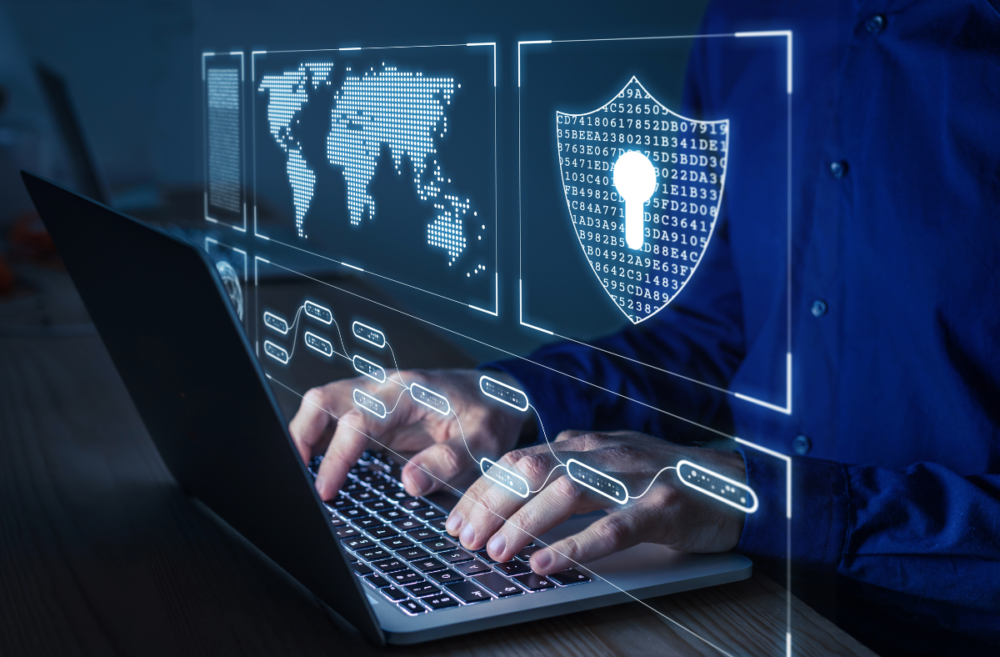Brits Encounter a Suspicious Emails or URL Every Five Seconds

Online scams are becoming one of the most common forms of fraud, luring individuals and businesses into sending private information through emails.
Your whole account can be compromised with a single click of the button. And although these scams are becoming sophisticated, there are many ways to protect yourself and your data.
This article will highlight recent research showing how dangerous online scams can be. We’ll also highlight different ways of protecting your information and what to do if you’re a victim.
● How common are online scams?
Online scams are becoming a widespread problem. Research from the National Cyber Security Centre shows that in 2022, the public made over 7.1 million reports of suspicious emails.
That equals an average of 19,500 daily, or one email every five seconds! What’s most worrying about that figure is that it shows a dramatic increase of 33% in incidents, showing that online scams are on the rise.
So what can you do to protect yourself?
● Seven ways to protect yourself from cyberattacks
Recognize the signs of an online scam.
Online scams often follow a pattern to try and draw in as many people as possible. These include:
- Urgent action: the email will often ask you to do something immediately (often within 24 hours) to protect your account.
- Spellings & phrases: many scam emails will be written by AI, which may contain misspellings, bland language, or robotic phrases.
- Address: check the sender’s email address. Many scammers use free services like Gmail or Hotmail to impersonate legitimate businesses.
- Suspicious Links: the messages may ask you to click on an unknown link or download a specific file, which often contains malware.
Spam filters
Many email platforms will have advanced spam filters to help combat online scams. These filters use a series of parameters to detect suspicious content and seal them away automatically.
You should examine these features and customize them to your specific needs. Gmail, for example, has robust anti-phishing settings that automatically send suspicious emails into spam folders. It can also send mail to quarantine and await your approval.
Review security settings on social media.
Cybercriminals often use social media sites to learn as much about you as possible. That way, when they message you, they can make themselves much more personable, friendly, and legitimate by using verified information.
Make things harder for them by regularly reviewing your privacy settings, especially on social media sites and LinkedIn. Ensure no personal information is readily available by removing email addresses and home addresses, education, and workplaces from public view.
Using a virtual private network (VPN)
Speaking of personal information, a VPN is a valuable cybersecurity tool that can protect all your data and prevent online scams from ever crossing your path.
It encrypts your data, disguises your IP address, and blocks online trackers from monitoring internet activity. Even on public Wi-Fi networks, a VPN gives you peace of mind that no prying eyes are looking at your screen and collecting information about you.
That said, a VPN isn’t invincible, and there are certain things it simply cannot prevent. For example, a VPN won’t protect you if you willingly click on and log in to suspicious websites and pop-ups or download harmful files.
Overall, there are advantages and disadvantages of a VPN, but the positives outweigh any negatives, and it is one of the most helpful cybersecurity tools to use in any scenario.
Keep everything updated
Cybercriminals are constantly developing new ways to exploit system vulnerabilities. And the best protection against this is keeping your system and programs up-to-date with the latest protections.
~For example, many browsers now have built-in anti-phishing safeguards that warn you when clicking on a bad URL and blocking intrusive pop-ups.
Two-factor authentication (2FA)
2FA adds another layer of protection to your accounts by requiring two verification methods. These are commonly single-use codes sent to an email address or a phone number you must enter to gain access.
2FA can protect you from online scams because even if the criminal does get your password information, they will still need additional information, like the text message from your phone, to do any harm.
If you’re the victim of an online scam
If you’re worried you have been tricked into giving personal information, the most important things to do are:
- Report the incident to your local police.
- Contact your bank or online service to protect your account.
- Change passwords to all accounts that may be compromised.
- Perform a full antivirus scan on your computer.




